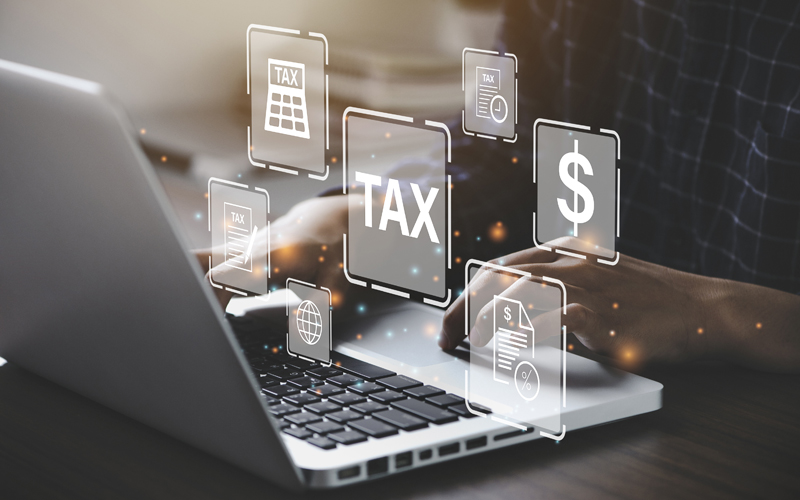Did you know identity theft cases have increased over the last five years? And tax fraud ranks among the top 5 types of identity theft? Taxes are stressful enough. Don’t let identity theft add to your worries.
As tax season rolls around, individuals and businesses are often preoccupied with gathering documents, crunching numbers, and ensuring compliance with tax laws. However, amidst the hustle and bustle, there’s one aspect that should never be overlooked: cybersecurity. With the increasing number of financial transactions and sensitive information being processed online, the risk of cyber threats during tax season has become a pressing concern. In this blog, we’ll explore why cybersecurity matters during tax season and provide practical tips to safeguard your finances against potential threats.
Understanding the Risks
The convergence of financial data and technology has made tax-related information a prime target for cybercriminals. From phishing scams and identity theft to ransomware attacks, threats are evolving. Cybercriminals may attempt to steal personal information such as Social Security numbers, bank account details, and tax identification numbers to file fraudulent returns or commit other forms of financial fraud.
Key Cybersecurity Threats
Phishing Emails
Cybercriminals often use phishing emails disguised as legitimate correspondence from tax authorities or financial institutions to trick individuals into revealing sensitive information or downloading malware.
Ransomware Attacks
Businesses and individuals are at risk of ransomware attacks that can encrypt sensitive data, rendering it inaccessible until a ransom is paid.
Identity Theft
Stolen personal information can be used to file fraudulent tax returns, claim refunds, or open lines of credit, leading to financial losses and damage to credit scores.
Data Breaches
Weak cybersecurity measures can leave taxpayer data vulnerable to unauthorized access, potentially resulting in data breaches and reputational damage for businesses.
Protecting Your Finances
Use Secure Connections
When accessing tax-related websites or submitting sensitive information online, ensure you’re using a secure internet connection, preferably a private and encrypted network.
PC Matic VPN offers a truly private browsing experience, shielding your internet activities from hackers, online spies, employers, your ISP, governments, and more.
Beware of Phishing Attempts
Exercise caution when opening emails or clicking on links purporting to be from tax authorities or financial institutions. Verify the sender’s identity and look for signs of phishing, such as grammatical errors or suspicious URLs.
Keep Software Updated
Regularly update your operating system, antivirus software, and other applications to patch known vulnerabilities and protect against malware.
Use Strong Authentication
Enable multi-factor authentication (MFA) wherever possible to add an extra layer of security to your online accounts and prevent unauthorized access.
Secure Your Devices
Implement robust security measures on your computers, smartphones, and other devices, including strong passwords, biometric authentication, and device encryption.
PC Matic Home provides industry-leading antivirus that is affordable and easy to manage. PC Matic prevents cybercriminals from running malware or ransomware on your Windows, macOS, iOS, and Android devices.\
Conclusion
During tax season, prioritizing cybersecurity is essential to safeguarding your finances and sensitive personal information from cyber threats. By staying vigilant, implementing security best practices, and leveraging the latest technologies, individuals and businesses can minimize the risk of falling victim to cybercrime during this critical time of year. Remember, protecting your financial well-being goes hand in hand with protecting your digital assets.
Taxes are stressful enough. Don’t let identity theft add to your worries. PC Matic provides complete protection from online threats, including identity theft.




